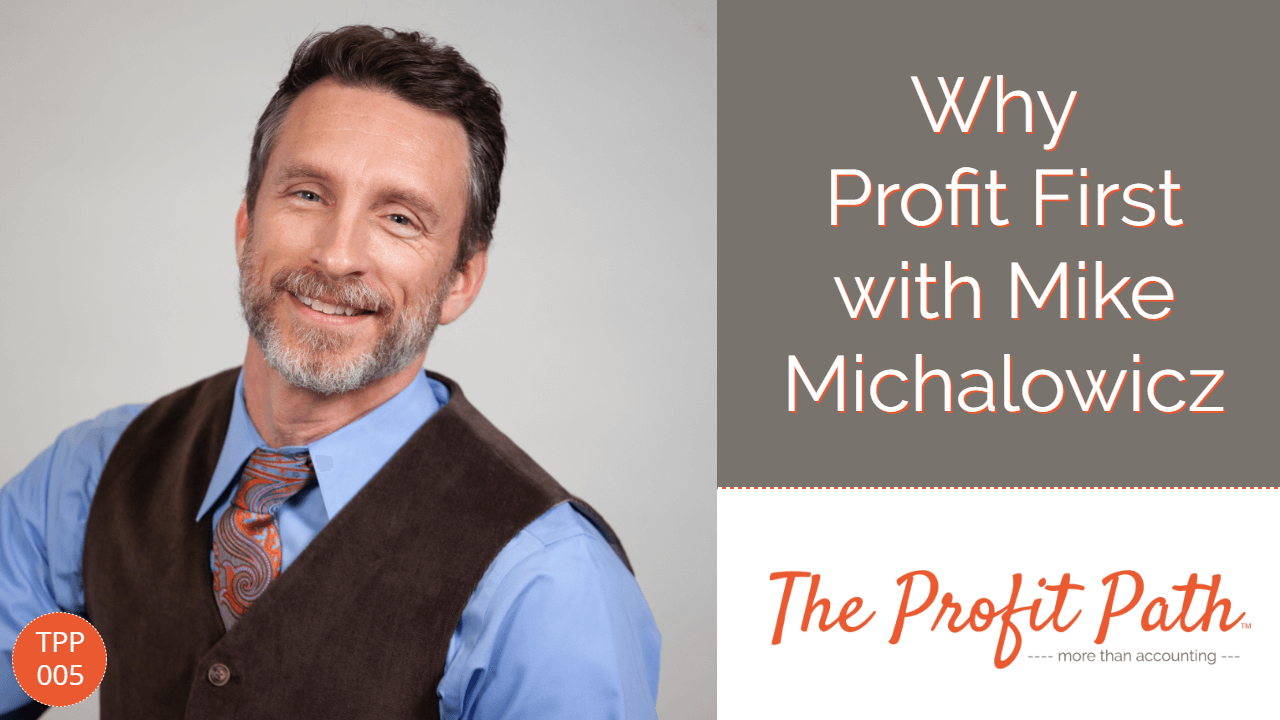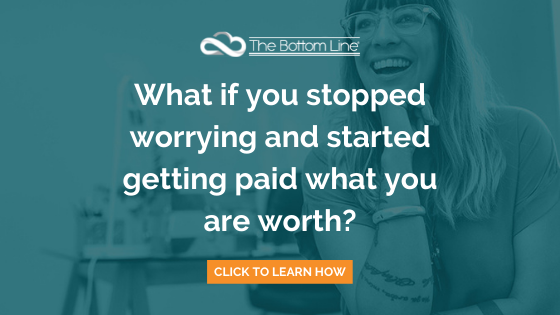Amazon FBA, eCommerce, Online Business Owners go into business for a reason. Somewhere along the way, the business meant for a greater purpose became a “cash-eating monster.”
Jessica Mae, host of The Profit Path™ podcast is honored to interview Mike Michalowicz of MikeMichalowicz.com. The time to stand up to your business and tell it what it’s going to do for you so you stop letting the business run you around is now!

By his 35th birthday, MIKE MICHALOWICZ (pronounced mi-‘kal-o-wits) had founded and sold two multi-million dollar companies.
Confident that he had the formula to success, he became an angel investor…and proceeded to lose his entire fortune. Then he started all over again, driven to find better ways to grow healthy, strong companies. Among other innovative strategies, Mike created the “Profit First Formula”, a way for businesses to ensure profitability from their very next deposit forward.
PROFIT FIRST IMPACTS THE BOTTOM LINE CPA
The first time we read Profit First was Memorial Day weekend 2014. Jessica shares the story of that weekend – her tears, laughter, and hope she gained. The game-changing epiphany?
“Your business has to serve you too.”
Hearing Mike out loud in his funny but impacting style while listening to the audiobook, Jessica connected. It was time for things to change… and so it did.
Don’t miss out on this wonderful exchange in the first 4 minutes of the podcast! Let’s dive in on all the other great things Mike had to share. 🙂
What is Profit First and why Profit First?
There's this established formula, which is foundationally part of the GAAP edict. GAAP stands for “Generally Accepted Accounting Principles.”
These are rules that large businesses, it's mandatory; they're required to follow GAAP principles, and small businesses inherently follow this, but the foundational formula is sales minus expense equals profit.
Every entrepreneur I speak with, every book I've read on the subject, they all reference this formula. Sometimes they just use the verbiage, like calling profit “the bottom line” or “the year-end,” and I had this epiphany.
I struggled with profit forever, and I believed and lived by that formula of profits being the bottom line. That's when the epiphany struck.
Whatever's a priority comes first. Whatever's insignificant comes last.
That's what we're told in the formula. While the GAAP formula of profit being the bottom line makes logical sense, it doesn't match our behavior, because what it teaches us is that profit is a consideration at the end of the month or the end of the year, and when it's not there, we do the “oh shucks, maybe next year.”
The Profit First formula flips the GAAP formula into the new school way of doing business and managing money as SALES – PROFIT = EXPENSES.
This is the core tenet of Profit First. We take a predetermined percentage of that money, allocate it as profit. It's the “pay yourself first” principle applied to business.
As a result, we're making a profit. We're taking it, we're hiding it away. We're forcing that profit, and then what's leftover is now left to run our business. It forces us to right-size our expenses, to work within the confines of what’s truly available.
What is “Bank Balance Accounting” and why do we care?
Another core tenet of Profit First is that we set up several key accounts at a bank, like a Profit account. There five main bank accounts when leveraging Profit First.
These five main bank accounts are: Profit, Tax, Owner’s Pay, Operating Expenses, and Income. You might say, what’s the reason for this?
I've had the privilege now, I think I've spoken with over 100,000 entrepreneurs. I've been speaking for 10 years. Audiences of a few hundred to a few thousand are regular for me.
When I survey the groups around Profit First, I'll say, “Who here does bank balance accounting?”
When I say Bank Balance Accounting, I mean entrepreneurs log into their bank account to see what their balance is and make decisions based upon the money there.
Who's circumventing reading the income statement and the balance sheet, and the cash flow statement, and the metrics, and the KPIs, and the budget?
The God honest truth is most entrepreneurs, I would guess upwards of 90% of the folks, raise their hands saying, “I revert to bank balance accounting.”
That's how I ran my business. I logged into my bank account, see how much money I have, and based upon that, I would make decisions. That's why Profit First is set up at your bank accounts.
When you log into your bank and you see all these accounts now, it's not just one big checking account for all your money; the money is now being divided up, pre-allocated to its purpose, profit being one, but there are others too.
Before you can spend a dime, you see clearly what money's available for what purpose, and the goal, of course, then, and there are mechanisms to do this, is to work within the confines of what's truly available to operate your business.
What is the power of the Profit account? Why do we need it?
Never. Never ever combine the Profit account with any other account you establish and let me start off by explaining the differences.
Profit is a reward to a shareholder of a business. This is the person who's invested in the business: either you've started it or you bought into it, but you're an investor.
An owner's compensation is for that circumstance where you're what's called an “owner-operator.” It means you also work within the business.
You are an employee to your own company called an owner-operator. That's what the owner's comp account is for, is to receive compensation for working in the business.
Profit is a distribution to the people who took on the risk. So, no combining the Profit account.
What is a Certified Profit First Professional and why hire one?
Working with a Certified Profit First Professional gives you that Operating Partner, a Strategic Advisor at that level to kind of see what you can't see because you're just in a buy/sell mode. I call them “the outside eyes.”
When we're in the business, even though we may not say this is true, there's a lot of emotion. Gut instinct. “Oh, I need to do this,” and you don't understand why “I have to do this,” but an outsider isn't tied to an emotion. We didn't buy the inventory and feel an attachment to it.
There's actually some behavioral reasons why if we buy inventory, of why we actually retain it, even if it doesn't make money. An outsider like a Certified Profit First Professional doesn't have those emotional ties, so we can give a much clear directive and make much more, I don't want to say “callous” decisions but much more logical decisions that aren't fraught with emotion.
Bringing in a Certified Profit First Professional can be one of the smartest things that you can do to drive profitability for sure. This is why the person listening should hire The Bottom Line CPA! 🙂
Stay Connected With Us
- Subscribe To Our YouTube Channel
- Engage With Us On Facebook
- Follow and Interact With Us On Instagram

